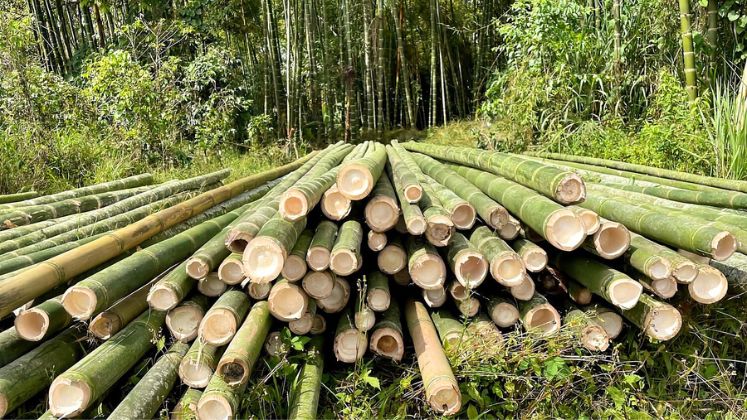
Two Indian bamboo species have been recognised by researchers at the Forest Research Institute (FRI) in Dehradun as superior substitutes for conventional wood-based dissolving grade pulp (DGP).
The study emphasises bamboo’s potential for sustainable textile production and was presented during Union Textiles Minister Giriraj Singh’s two-day visit to Dehradun.
The two bamboo species that made the short list have a high alpha-cellulose content (more than 52 per cent), low levels of ash and silica, and good pulping qualities that make them ideal for producing DGP, a crucial ingredient in the creation of textile fibres like viscose and rayon.
According to FRI Director Renu Singh, bamboo’s quick growth and sustainability make it a perfect resource for textile production, advancing the goal of a green and independent economy. While improving rural livelihoods, the research opens the door for bamboo to be used in high-value businesses.
Giriraj Singh praised the project, stating that it is about sustainability, jobs, and establishing India as a major player in the global textile industry.
A major step towards incorporating bamboo into the textile supply chain and offering environmentally friendly solutions for a burgeoning global market, officials also discussed future plans during the meeting, such as plans to scale up production, improve processes, and work with textile manufacturers.
In order to make bamboo a household name in the fashion industry and other sectors, the session ended with a commitment to further the research.
Ganesh Joshi, the Minister of Agriculture and Farmer Welfare for Uttarakhand, as well as senior representatives from the academic and forest services wings, including AK Sharma, Director of the Indian Jute Industries Research Association (IJIRA) in Kolkata, and Kanchan Devi, Director General of the Indian Council of Forestry Research & Education (ICFRE), were present at the meeting.






